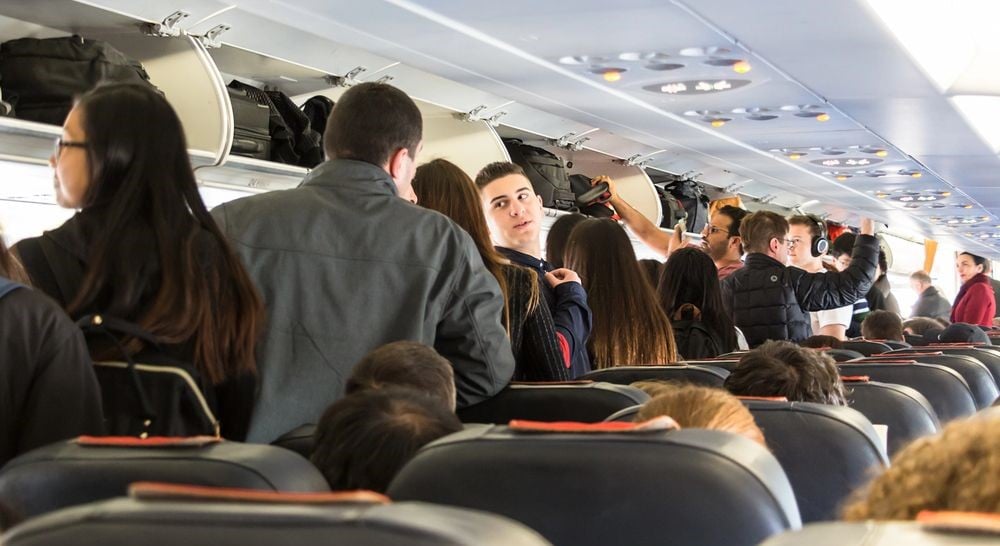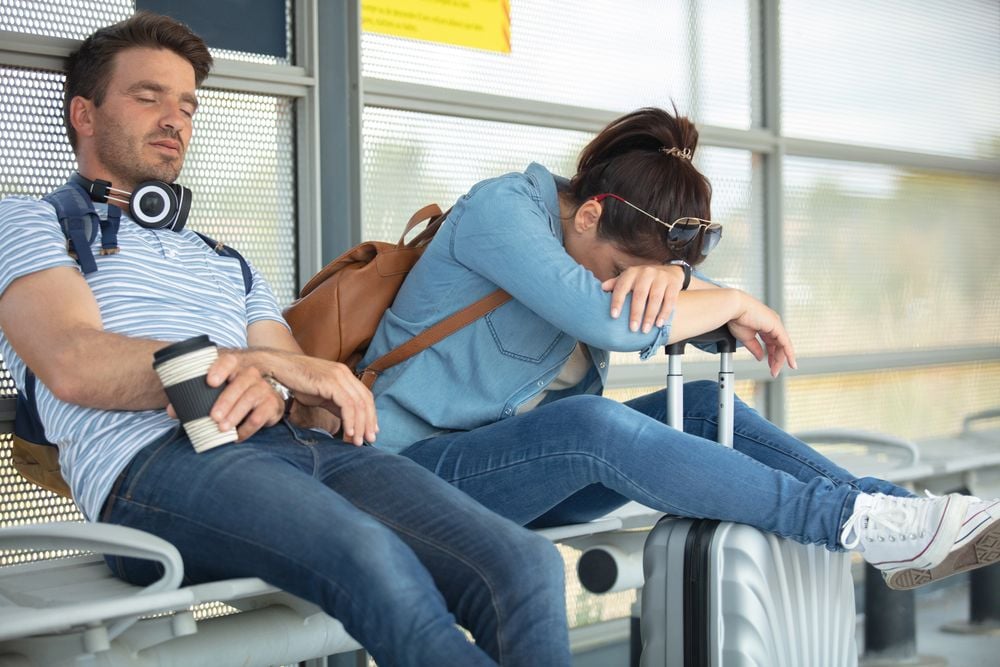Why Turkey is Fining Passengers Who Stand Up Before The Seatbelt Sign Goes Off
The plane has just touched down after hours in the air, and before the wheels stop rolling, passengers begin springing out of their seats, opening overhead bins, and crowding the aisle.
This is, in fact, a familiar scene on most commercial flights and in most countries, there is no penalty doing so. However, if your plane is landing in Turkey, this routine behavior could now come with a financial penalty.

Yes, standing up before the seatbelt sign is switched off may soon be a finable offense in Turkish airspace.
The Rise of the “Aisle Dash”
In response to a growing trend of passengers rushing to deplane the moment the aircraft lands, the Turkish Directorate of Civil Aviation has introduced a directive aimed at curbing this disruptive behavior. The move was prompted by concerns over safety and passenger satisfaction.
Kemal Yüksek, Director General of the Directorate, states that a bigger number of passengers have been violating both travel guidelines and considerateness for others. Passengers who break warnings by standing up, unfastening their seat belts too early or obstruct aisles may have to pay a fine up to 2,603 Turkish lira (around $67).
Personnel on the cabin crew may now advise passengers of the rules and report uncooperative ones to the proper authorities once the plane has touched down.
Why It Matters More Than You Think
Some might see the rule as excessive or heavy-handed. But aviation professionals say the measure is rooted in necessity.
“It is a safety issue,” explained Jennifer “Jaki” Johnson, flight attendant and CEO of Jetsetter Chic. Speaking to The Washington Post, Johnson noted that when passengers leave their seats prematurely, it not only creates risk but also adds pressure to the cabin crew, who must alert the cockpit to the incident.
While it looks steady as an aircraft taxis, it can move suddenly and jerk – especially during turns or when hitting the brakes. A person can easily lose control if they stand and if bags are taken out too soon, they might fall and hurt others. As a result, the objective isn’t only to keep order but also to avoid the accidents that often happen toward the end of a flight.
A Global Problem, A Local Solution
This isn’t just a Turkish issue – it’s part of a broader trend. Disruptive passenger behavior has been rising globally. In the U.S. alone, the FAA recorded almost 900 cases of unruly conduct during the first nine months of 2024 – outpacing the total from all of 2018.

For years, the International Air Transport Association (IATA) has seen this as an issue, noting that 2017 had one such passenger per 1,053 flights. Such factors are pandemic-related stress, disagreements over rules and maybe a bigger sense of entitlement in the publics.
Etiquette, it seems, is not keeping up with the pace of modern travel.
A Culture of Hurry
What’s driving this impatience? In a world where everything is instant—messages, meals, media—it’s no surprise that people struggle with waiting. Planes, with their confined spaces and rigid rules, are one of the few remaining environments where people must be still and follow protocol.
Yet, the moment the plane lands, restraint gives way to urgency. The desire to grab your bag, beat the crowd, and rush off can feel overwhelming.
But in Turkey, that behavior now has consequences.
The regulation specifically targets:
- Standing while the plane is taxiing
- Unbuckling seat belts too early
- Opening overhead bins prematurely
- Crowding the aisle before it’s your row’s turn
- Ignoring the natural flow of deplaning
These actions not only disrupt the exit process but can also be dangerous in the event of unexpected turbulence or a last-minute maneuver.
Reclaiming Courtesy at 30,000 Feet

The Turkish directive may seem strict, but perhaps it’s a reminder we all need. As air travel grows more common, it’s easy to forget that every flight is a shared space—and mutual respect is essential.
“Passenger and baggage safety and security” are at the core of the new rules, according to Yüksek, but so is “the satisfaction and exit priority” of fellow travelers.
Let’s face it: deplaning isn’t a race. Waiting an extra minute or two to stand up won’t make or break your day. But it might just improve the flying experience for everyone around you.
So next time you land, take a breath. Let the seatbelt sign guide you. And remember: patience may not just be polite – it could save you 67 bucks.






